Marcella Nunez-Smith Is Making COVID-19 Care More Equitable (And So Much More)
The leader of Biden's Health Equity Task Force is getting to work.
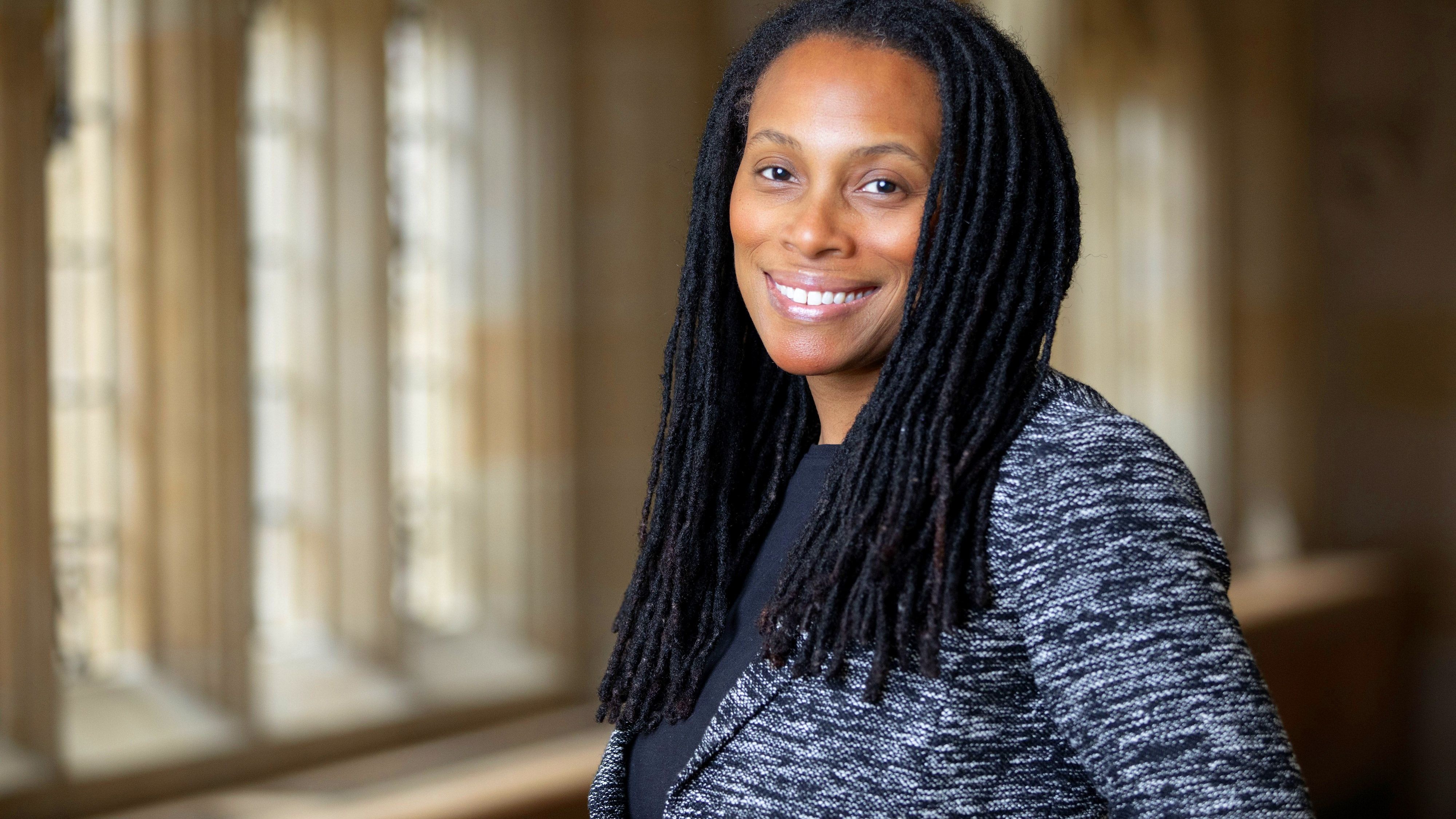

January 20, 2021, signaled (hopefully) the turning of a page in this COVID crisis. President Biden and Vice President Harris are focused on eradicating the virus and rebuilding the American economy—and they've enlisted the help of a talented team of advisors to make that happen.
One of the experts Biden has entrusted is Marcella Nunez-Smith. The former co-chair of Biden’s transition task force on COVID-19, Nunez-Smith now holds a historic title: She's the first-ever presidential advisor to focus acutely on making health care more equitable. Her role will to be to lead the new Health Equity Task Force, a group assembled to devise solutions to our country's deeply inequitable and racist health care system. One of her first goals is ensuring the equitable distribution of COVID-19 vaccines—crucially important, especially as research finds that people of color have been hardest hit by the pandemic, both physically and financially.
It's a big job to repair the broken health care system in the U.S., specifically as it relates to inequitable care for Black and brown people, but Nunez-Smith is the pick for the job. A Yale is professor and physician who has worked in the health equity space for 20 years, she understands that the issue at hand—vaccine distribution—is far from the only thing that needs work. "We have a lot to do," she says. And she's ready to start doing.
Here, Nunez-Smith shares more about her new role, the task force's top priorities, and what keeps her hopeful for the future.
Marie Claire: What do you anticipate your role leading this new federal task force to look like, and what are your goals for your first 100 days?
Marcella Nunez-Smith: It's a great honor to be asked to serve in this role. This is really unprecedented. Certainly, there are many career officials who are part of the federal government who are champions for health equity. But to have [President Biden and Vice President Harris] call for this kind of task force is important to note. That alone is incredibly inspiring to me.
But the other side of that coin is that we need it. And that's just a sad thing. I wish we lived [in a world] where we didn't need a Health Equity Task Force, where we weren't seeing such disparate impact on the communities that are hardest [by COVID-19] in terms of who is getting infected, who is getting admitted to the hospital, and who is dying from COVID-19. There's economic disparity, too.
Stay In The Know
Get exclusive access to fashion and beauty trends, hot-off-the-press celebrity news, and more.
The legacy of structural racism and discrimination in our country, quite frankly, [is why] we need to have a health equity task force in the first place. Vaccination is going to be a high priority for the task force. But we're going to have to walk and chew gum, because there are many parallel issues here. We can't lose sight of the other [issues]. Is there equitable access to testing? To any treatments and therapies? As we think about contact tracing, how are we helping people adhere to public health guidelines by meeting basic needs and providing economic security? We have to think about all of that. In the bigger context, we ask, how do bring back resilience in communities? How do we think about pathways to economic recovery and educational recovery as well? I'm very excited to be able to lead on this work, but really, health equity has always been a team sport.
MC: We know health inequities and racial health disparities have, unfortunately, existed in our healthcare system long before COVID-19. You have worked in health equity for years. Have you seen progress? And if not, what keeps you hopeful?
MNS: I've been a practicing internal medicine physician now for almost two decades. When I started my medical education and career, there wasn't even a language like this. Very early on, we started talking about disparities. Then, I advanced to understanding inequities, how those differences are really driven by social factors, realities, and structural considerations. Even just within the field, I think that rapid evolution of understanding the root cause is a source of hope. The conversations are certainly different. There are reports that are put out by the federal government that show that we have a lot of work left to do when we think specifically about access to high quality healthcare for everyone.
We have a lot to do, but we have made some progress. And I think the moment we're in right now cannot be understated. With our collective witnessing to 2020, I think, for some, particularly those of us who've been doing this work for a while, we could have predicted who was going to be most affected. But after the experiences of this year and seeing those disparities laid bare, we cannot unsee it, we cannot go back to where we were. So I expect an acceleration, quite frankly.
MC: Did any moments in your past specifically inspire you to go into this line of work?
MNS: I think a lot of us, hopefully, are able to bring our full selves to our work. And for me, that's certainly true. I am informed by my own personal experiences and the experiences of those around me. I’ve talked openly about my own father having had a stroke at a very young age. That's a preventable condition. [It had a] lasting impact, certainly, for me. But that story is not unique. That's why we're here having this conversation; there are so many, many, many families and communities where potential, quite frankly, has been cut short because of the limited access to the tools we need for health and wellness. We have to build back better, and that's exactly what the [new] administration is wholly committed to. It can't just be about getting vaccination to anybody. It has to be about increasing the minimum wage, getting folks in school, [and giving] educational access for a future we all should have the opportunity to have.
MC: There’s a mental health crisis that's specifically occurring in Black communities as the result of years of systemic racism and prejudice. As we look at health as an integrative model, how do we approach equity in that area?
MNS: We have to innovate and be creative. We have to build out [the mental health] workforce. We also have to make sure that there are paths to parity in terms of reimbursement. [President Biden has talked about] a very substantial investment in mental health and mental health services. That is where we lead. I know we still have conversations about stigma, but I think we have to address a lot of those other structural issues too, as well. We see the need now, in the times of COVID, for many more resources to address the mental health and behavioral health needs of all of us.
MC: What are other issues that you hope to tackle within the next year or two?
MNS: For me and for the task force, we say that we're excited to work ourselves out of a job. We want to be in a place where we're able to say, "look, we're seeing equity in this COVID-19 space as we talk about vaccines and testing and access to therapies and support for people in quarantine and isolation." [We want to] have a roadmap moving forward for how we build resilience. We have to disrupt the predictability of this pattern. You don't need the crystal ball.
Part of the task force is to say, "what do we need right now, for COVID-19, to get us an equitable response?" and then to think about recovery and long-term plans. I think one thing that's important to know is that equity doesn't live only in the task force. The Biden-Harris administration centers on equity uniformly. We're excited for the task force to be able to convene leaders, to build coalition with those outside the government and inside of the government to think through solutions and resolutions. We're eager to say, "our work here is done." That's what success looks like for us—it’s being able to pass that baton.
MC: Being the first to do anything can be nerve-wracking. What keeps you courageous?
MNS: I think the moment just calls for it. I could not have imagined any of this. It's not about me. It's never been about me. This is about the work that needs to be done. There are so many who have come before who are doing this work in health equity; there are so many people who have been ignored, who were disbelieved when they said, "look at these realities and let's address them." I look into the eyes of my three young children and find courage to create something better for them moving forward.
This interview has been edited for length and clarity.
Related Story

Related Story
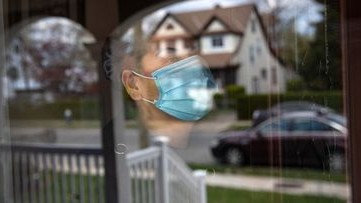
Megan DiTrolio is the editor of features and special projects at Marie Claire, where she oversees all career coverage and writes and edits stories on women’s issues, politics, cultural trends, and more. In addition to editing feature stories, she programs Marie Claire’s annual Power Trip conference and Marie Claire’s Getting Down To Business Instagram Live franchise.
-
 Strawberry Perfumes Are Summer 2025's Juiciest Fragrance Trend
Strawberry Perfumes Are Summer 2025's Juiciest Fragrance TrendThe It girl fragrance note can be fun, fresh, sexy—and everything in between.
By Brooke Knappenberger
-
 Sonia Citron's First Coach Outfit Is Entirely Custom—and for the WNBA Draft
Sonia Citron's First Coach Outfit Is Entirely Custom—and for the WNBA DraftHer rookie style chapter is just getting started.
By Halie LeSavage
-
 Taylor Townsend Sea Mosses Her Way to Better Wellness
Taylor Townsend Sea Mosses Her Way to Better WellnessThe tennis star serves up self-care between sets.
By Siena Gagliano
-
 How Different Kinds of Caffeine Affect Your Productivity: a Semi-Scientific Study
How Different Kinds of Caffeine Affect Your Productivity: a Semi-Scientific StudyBecause speeding through the day is all that matters.
By Chelsea Peng
-
 Five Small Steps for Beating Burnout
Five Small Steps for Beating BurnoutHow To The pandemic has exacerbated burnout, especially for women. Here are five things you can do right now to feel less stressed and more well-rested, instantly.
By Arianna Huffington
-
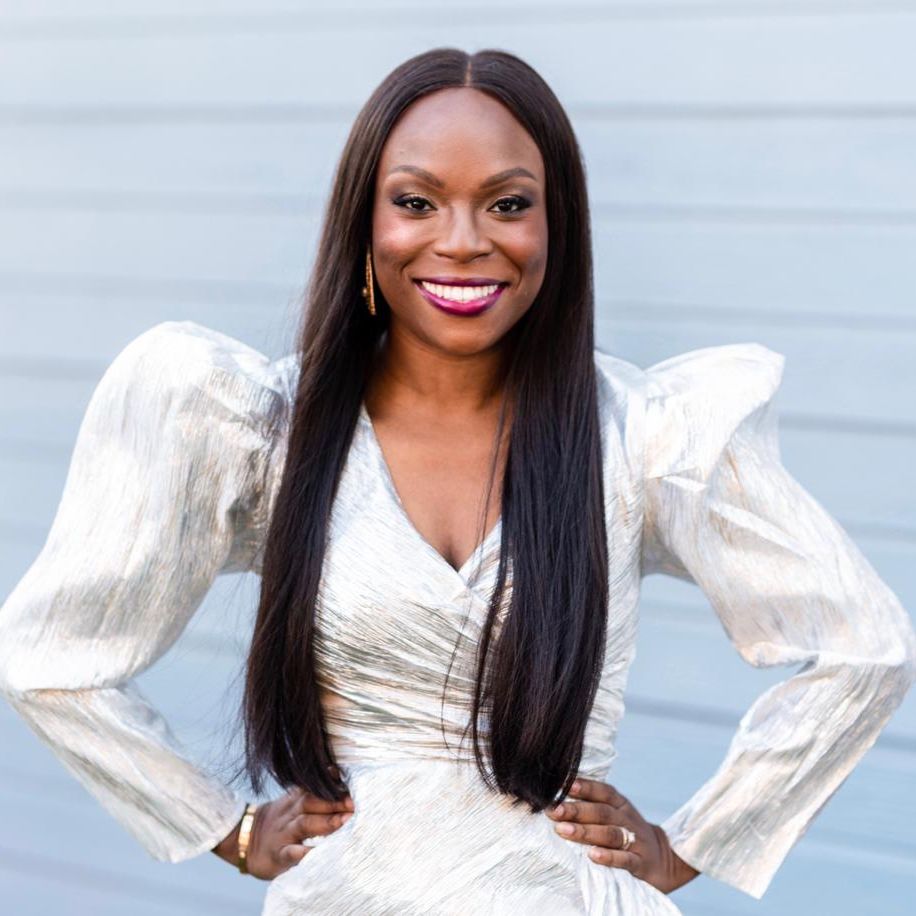 Dara Treseder Is the Reason You're Obsessed With Peloton
Dara Treseder Is the Reason You're Obsessed With PelotonThat's kind of her job. As the company's SVP, head of global marketing and communications, Treseder is responsible for building Peloton's brand and its rider community. Here, she talks ambition, being a Black woman in corporate America, and the value of investing in yourself.
By Megan DiTrolio
-
 The Sacred Boom
The Sacred BoomWith the demand for mystical services on the rise, a growing number of women are channeling their spiritual gifts into full-blown careers.
By Tatiana Boncompagni
-
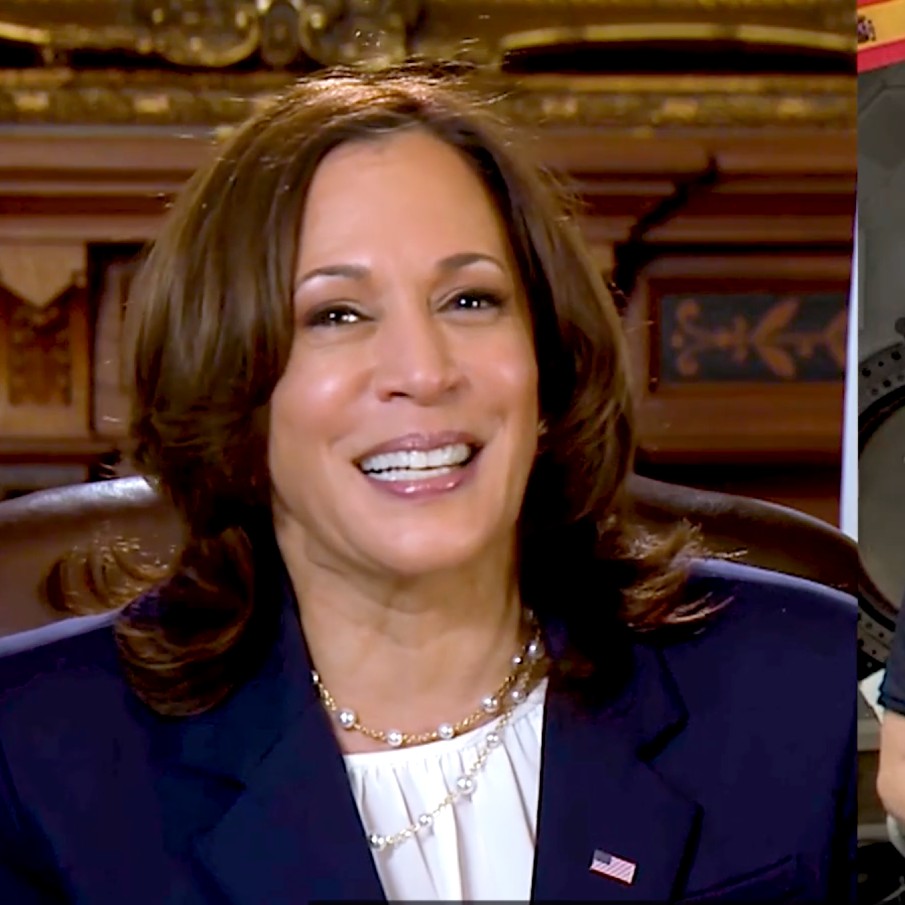 Watch VP Harris Speak to NASA Astronauts in Space
Watch VP Harris Speak to NASA Astronauts in SpaceThe vice president chatted with barrier-breaking female astronauts at the International Space Station about their work in honor of Women's History Month.
By Rachel Epstein
-
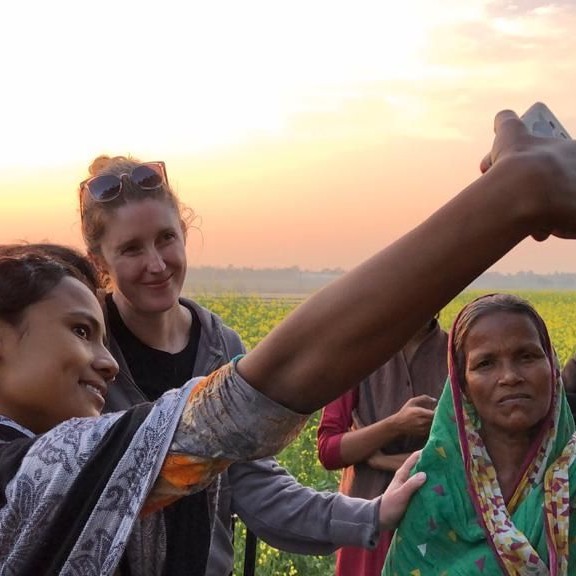 New Film Series 'Five' Celebrates Female Entrepreneurs Making Change
New Film Series 'Five' Celebrates Female Entrepreneurs Making ChangeFilmmaker Lisa Madison's new project highlights five female entrepreneurs who are determined to make a positive impact on their communities.
By Megan DiTrolio
-
 New Initiative Pledges 2 Million Mentorship Minutes to Women In Need
New Initiative Pledges 2 Million Mentorship Minutes to Women In NeedDee Poku, founder and CEO of the WIE Suite, wants to get women back into the workforce. And she needs your help.
By Megan DiTrolio
-
 Captain Sarah Kociuba Is One of 10 Female B-2 Pilots. She's Flying the Bomber Over the Super Bowl.
Captain Sarah Kociuba Is One of 10 Female B-2 Pilots. She's Flying the Bomber Over the Super Bowl.Sunday's historical Super Bowl flyover will be captained by Kociuba.
By Megan DiTrolio